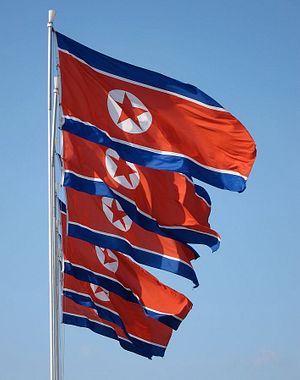Early on Tuesday, North Korea’s foreign ministry announced that all Malaysian citizens within its borders — including diplomats — would be temporarily barred from leaving the country pending the safe return of North Korean citizens in Malaysia. North Korea’s unusual and provocative decision comes after Pyongyang expelled the Malaysian ambassador after Kuala Lumpur ordered Kang Chol, the North Korean envoy, to leave the country.
Pyongyang’s move considerably accelerates the rapid deterioration of the bilateral diplomatic relationship in the aftermath of the assassination of North Korean leader Kim Jong-un’s half brother, Kim Jong-nam, at Kuala Lumpur International Airport in February.
The North Korea-backed assassins used the VX nerve agent at the airport, Malaysian investigators found. Malaysian authorities have implicated a number of North Korean suspects, including diplomats and staff at the North Korean embassy.
North Korea’s move is highly irregular and a represents a violation of the Vienna Convention on Diplomatic Relations, which Pyongyang has ratified. In reciprocation, Malaysia has also banned North Korean citizens, diplomats, and embassy staff from leaving its borders, which would also put Kuala Lumpur in violation of the Convention.
In effect, North Korea’s move amounts to state-sanctioned hostage-taking; North Korea has suggested it will allow Malaysian citizens and diplomats free travel out of the country if its conditions are met and its citizens under investigation in Malaysia are returned to Pyongyang.
Malaysian Prime Minister Najib Razak issued a statement condemning what he called an “abhorrent act” by North Korea, that was “effectively holding [Malaysian] citizens hostage … in total disregard of all international law and diplomatic norms.”
Najib’s statement added that Malaysia would “not hesitate to take all measures necessary” to protect its citizens “when they are threatened.” Najib added that Malaysia’s National Security Council would convene for an emergency meeting on Tuesday.
Sheena Greitens, an assistant professor at the University of Missouri who studies North Korea, told The Diplomat that “North Korea’s made it pretty clear in the past that international norms — like the Vienna Convention — are not something the regime takes seriously.”
Moreover, in the wake of Kim Jong-nam’s assassination, North Korea’s illicit arms-trade networks and other activities in North Korea have received renewed scrutiny. “The regime may well be worried that under pressure the DPRK citizens still there will defect and expose those networks further,” Greitens added. As sanctions tighten on North Korea, having those networks exposed could “place significant financial pressure on the regime in the near term.”
North Korea has been especially sensitive to the prospect of defectors in recent months, following the defection of Thae Yong-ho, a senior North Korean diplomat who defected to South Korea from Pyongyang’s diplomatic mission in London.
As far as why North Korea chose to up the ante after Malaysia expelled its ambassador, Greitens suggests that Pyongyang is looking to set itself up with an advantageous negotiating position with Kuala Lumpur.
Relations between Malaysia and North Korea have fallen off a cliff in the aftermath of Kim Jong-nam’s assassination. As my colleague Prashanth Parameswaran explained, the two countries had a normal, if not exceptionally close, diplomatic relationship, with Malaysia being one of the few countries where North Korean workers could travel and work.
That’s all history now, with the very foundation of the bilateral relationship under question. Especially after North Korea’s declaration on Tuesday, bilateral ties between Pyongyang and Kuala Lumpur may have reached a breaking point from which they may not recover.
Finally, North Korea’s reputation as the world’s foremost rogue state will only solidify as a result of its declaration on Tuesday, which comes a day after it launched four ballistic missiles into the Sea of Japan in violation of United Nations Security Council resolutions.

































